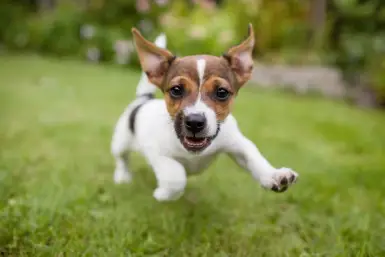
Browse Categories
- Dog Boot Camps
- Test
- Test
- Dogs Please Clicker Training
- Pet Insurance Comparison
- Exercising Pets With An E Scooter
- 10 Reasons Why Guinea Pigs Are Wholesome Little Pets
- Why You Should Use a Shed to House Your Pet
- How can Dog Owners Keep their Carpets Clean?
- How to Keep Your House in Order With Large Pets
- What is the Best Way to Feed a Puppy to Keep Them Healthy
- Pets Please
- All Animals and Pets
- Dogs and Puppies
- Cats and Kittens
- Birds
- Fish
- Reptiles
- All Other Small Pets
- Claws 'N' Paws Events
- PetsInLimbo/Greys4PetsInc.
News Search
PetsPlease News and Advice
Things You Can Do To Help Curb Your Pet`s Flatulence

As your pet is eating, he is also swallowing oxygen, nitrogen and other gasses.
About all of the oxygen is quickly absorbed through the intestinal wall, into the bloodstream.
Nitrogen is left and bacteria in the intestine changes food into different substances, and one of those is gas. The volume and odor can vary greatly.
Things that contribute to gas production include: dog foods high in wheat, corn, soy and other cereal grains; food additives and preservatives; excessive protein like eggs and dairy and is particularly smelly; a fast change in diet or excessive foods like cabbage, broccoli, cauliflower, beans, and lentils; over-the-counter or prescription drugs; like blood pressure drugs, narcotics, herbs, antidepressants, antibiotics, and natural supplements; intestinal parasites like Giardia; inflammatory bowel conditions and include food allergies and adverse reactions to foods; problems with acid production in the stomach or digestive enzyme production; bacterial overgrowth, which stress, medications and allergies can aggravate this condition; and stress can cause a change in the body`s hormonal balance which can lead to damage to the immune system, intestinal lining, and fungal and bacterial balance. as per " huffingtonpost.com"
Here are some simple things you can do to try to help with your pet`s flatulence. If it`s a new problem, check your pet`s diet to see if there have been any changes.
Try high fiber and low fiber diets as some will better on high fiber while others will do better on a low fiber diet. You can add a pro-biotic bacteria or a little of a digestive enzyme to their diet. Check to see if there is any stressful things going on in your pet`s life. You can buy charcoal biscuits or tablets and they have been helpful in many cases.
One of the simplest ways to solve this problem, though it won`t work for every single dog, is to add a teaspoon or two to their food on a daily basis. If your pet`s gas is recurring, chronic, unrelenting, associated with weight loss or other systemic signs of disease, contact your vet immediately and schedule an appointment as soon as possible.

